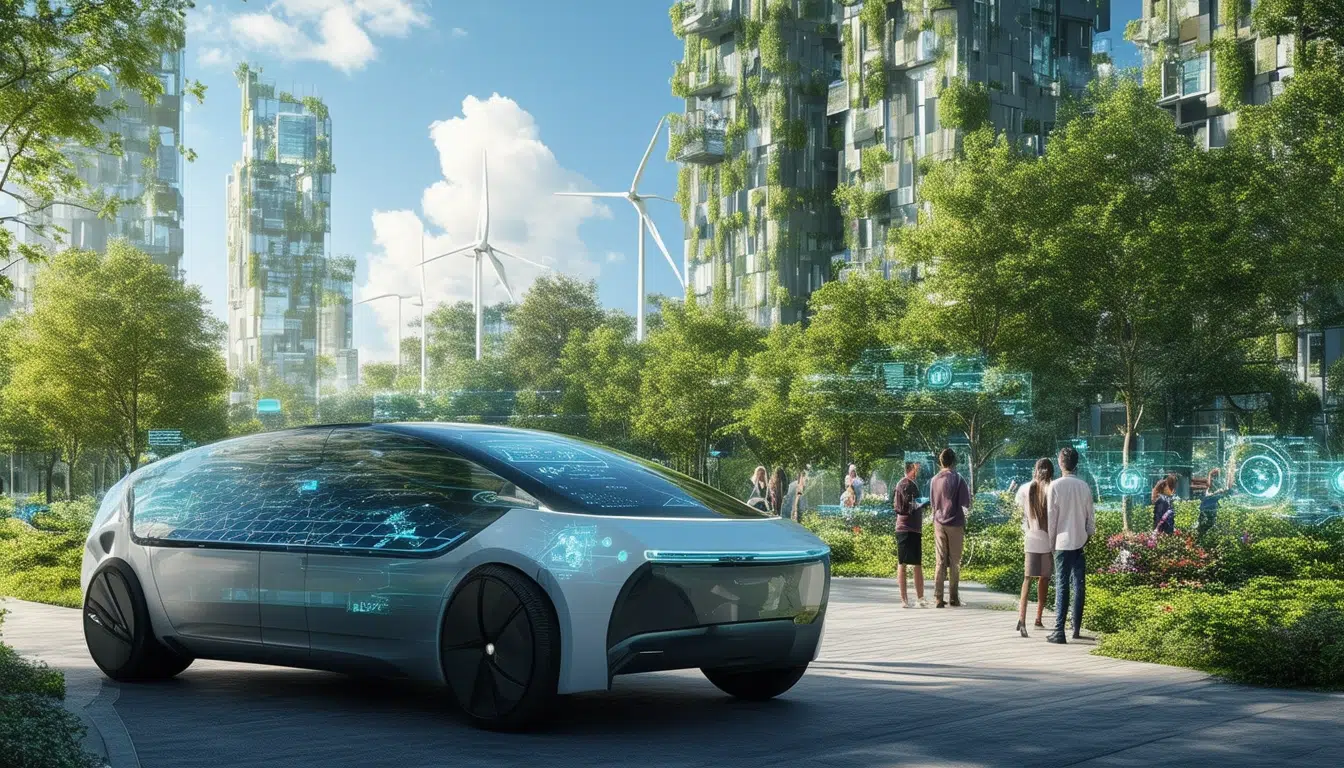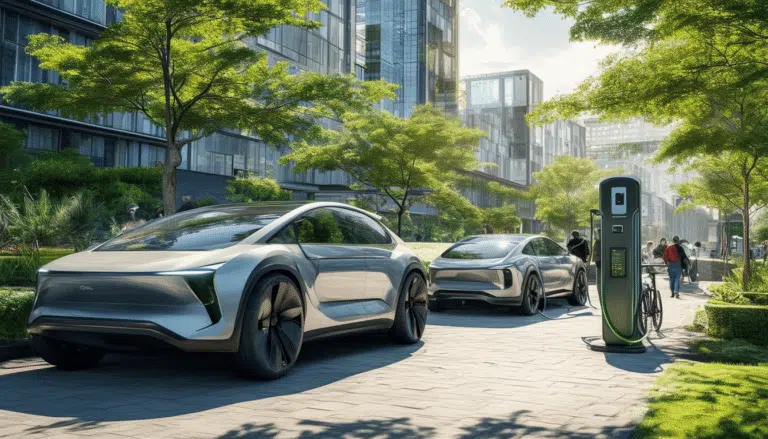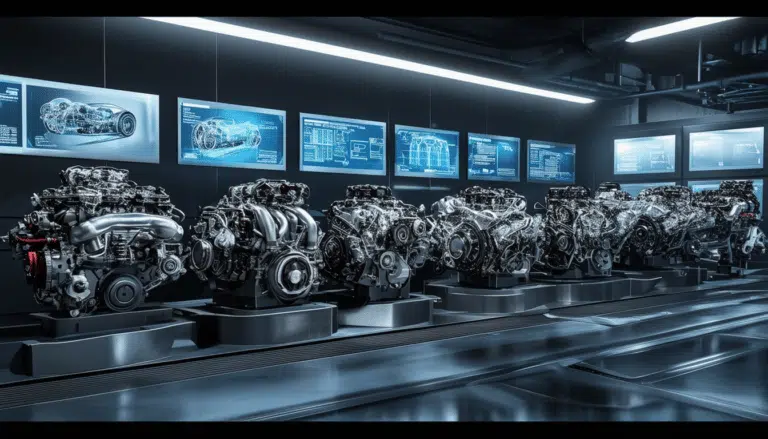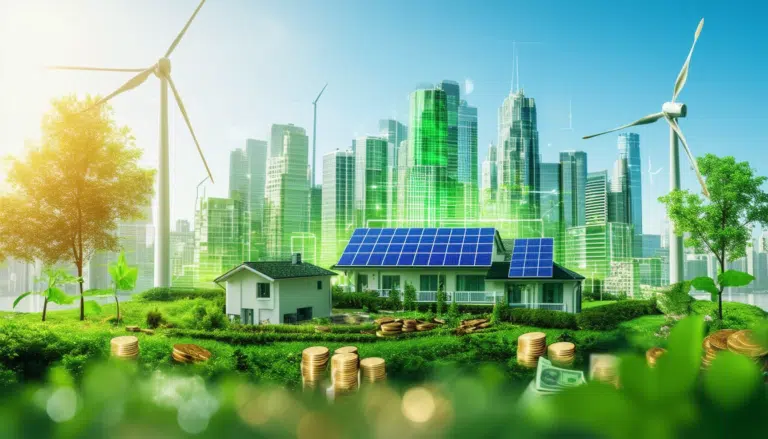Discovering the future of automotive ecology

In a world where sustainability has become a priority, automotive ecology emerges as a key topic. Automobile manufacturers are exploring sustainable materials and advanced technologies to transform the future of transportation. From hydrogen-powered vehicles to the design of recyclable and efficient cars, the automotive sector is at a crucial crossroads that seeks not only to minimize its environmental impact, but also to redefine mobility in an integrated and connected way. This is the beginning of a shift towards a greener and more promising tomorrow in the automotive industry.
In a world driven by the need for sustainability and technological change, the automotive industry has taken a significant step towards a greener future. This article explores how the use of sustainable materials, hydrogen-powered vehicles, and advanced connectivity technologies are transforming mobility in our time. It also addresses the environmental impact of the automotive industry and how strategies are being developed to reduce its carbon footprint.
Sustainable Materials in the Cars of the Future
The growing concern about the environmental impact of vehicles has led manufacturers to consider the implementation of alternative sustainable materials. These materials are not only beneficial for the ecosystem but also offer promising mechanical and aesthetic properties. Innovations such as the use of bioplastics, recycled aluminum, and natural fibers are gaining ground in car production, fostering a change that does not harm the environment but improves vehicle efficiency.
Hydrogen: Fuel of the Future
Within the landscape of eco-friendly vehicles, those powered by hydrogen engines stand out for their potential to reduce carbon emissions. These vehicles offer a clean alternative, where the byproduct of combustion is water, positioning themselves as a significant promise for the future of automotive fuels. However, the development of appropriate infrastructure for their production and distribution still represents a monumental challenge.
Innovation and Connectivity in the Cars of the Future
The future of the automobile is not limited to sustainability alone. The vehicles of tomorrow will be equipped with technologies that allow for interconnection between cars and surrounding devices. This includes systems that collect and share real-time data, enhancing safety and efficiency in urban transportation. Advanced connectivity offers a glimpse into an ecosystem where cars are synchronized with the city, contributing to smarter and more sustainable mobility.
Environmental Impact of the Automotive Industry
One of the biggest challenges facing the automotive industry is its significant environmental impact, from the extraction of raw materials to the production and disposal of vehicles. This cycle generates a high carbon footprint, with direct repercussions on air quality and global natural resources. Initiatives such as the construction of recyclable electric cars aim to minimize this impact, promoting the adoption of greener and more sustainable practices.
Emerging Trends in Automotive Ecology
Technological and social trends are redefining the automotive landscape, driving the development of lighter, recyclable, and more efficient vehicles. In line with the commitments of various jurisdictions such as the EU and China, the traceability of materials and the circularity of automotive production take center stage in these evolutions. Thus, the path towards a more sustainable automotive industry is well paved, allowing manufacturers to adapt to current environmental demands.
The automotive landscape is being redefined in a context where sustainability has taken center stage. The automotive industry, historically known for its high environmental impact, is at a crucial moment of transformation. Technological innovations, such as electric vehicles and hydrogen engines, are leading this revolution, providing alternatives that promise to significantly reduce carbon emissions. Hydrogen, in particular, is positioning itself as a fuel of the future, thanks to its capacity to offer clean combustion.
Moreover, the concept of circularity in automobile production is becoming an essential pillar. The use of sustainable materials and recyclable designs not only helps minimize ecological impact but also paves the way towards a more environmentally friendly and efficient economy. Manufacturers are adopting increasingly eco-friendly practices, which involve the reuse of materials and the design of cars that, at the end of their useful life, can be reintegrated into the production cycle.
The integration of new technologies is also playing a fundamental role. The cars of the future will not only be sustainable but will also be connected, allowing for effective communication with other vehicles and adjacent infrastructures. This not only promises to improve urban mobility efficiency but could also raise safety and comfort standards.
It cannot be ignored that the challenge is overwhelming; the transition to eco-friendly vehicles and cleaner production practices requires significant efforts from manufacturers, consumers, and policymakers. However, the growing social awareness of the need to protect our planet is driving this transformation, offering tangible hope for a cleaner and more sustainable future in the automotive world.




